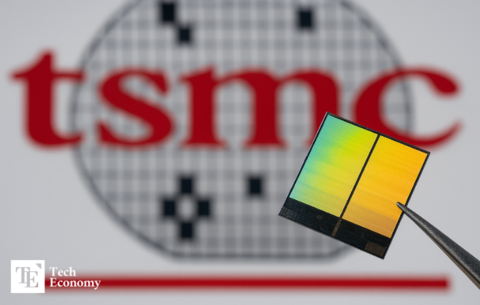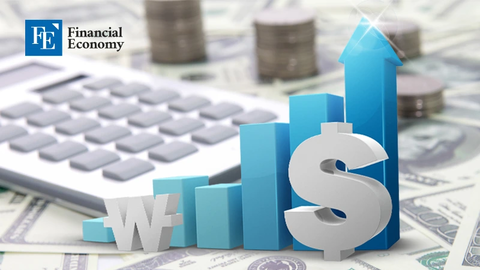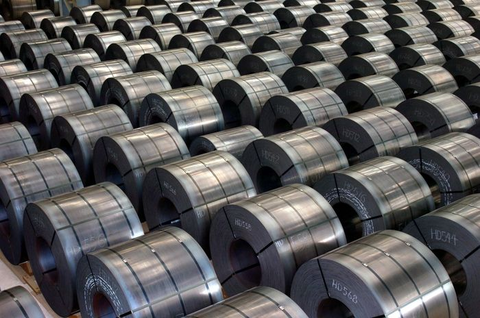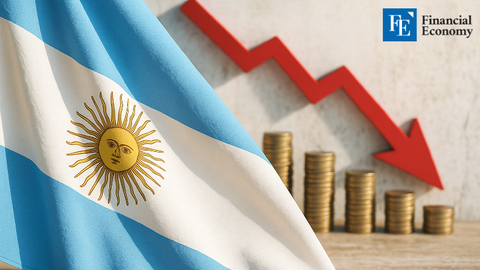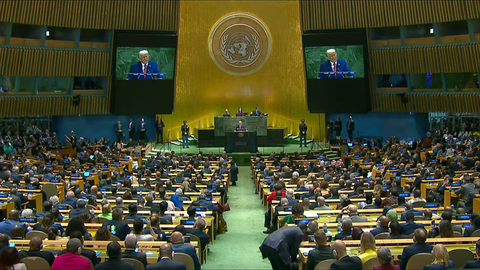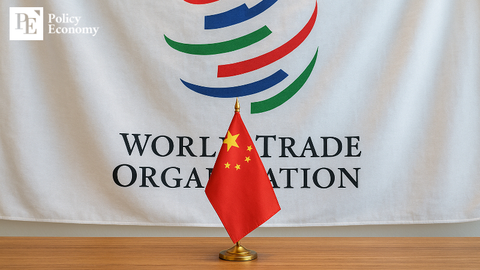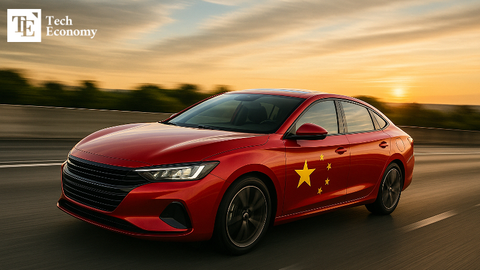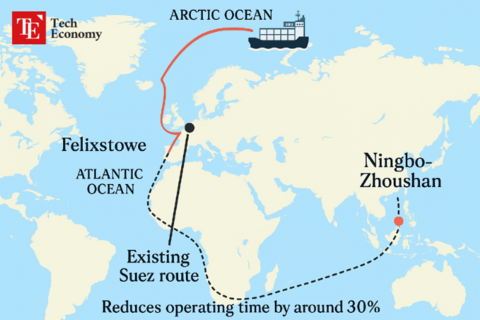Apple at a Crossroads: Innovation Eclipsed Amid AI Race, Geopolitical Tensions
Input
Modified
Tim Cook Becomes Longest-Serving CEO in Apple’s History Lagging in AI Race Delays Next-Gen Product Pipeline Facing Compounded Risks from Antitrust Scrutiny in U.S. and EU
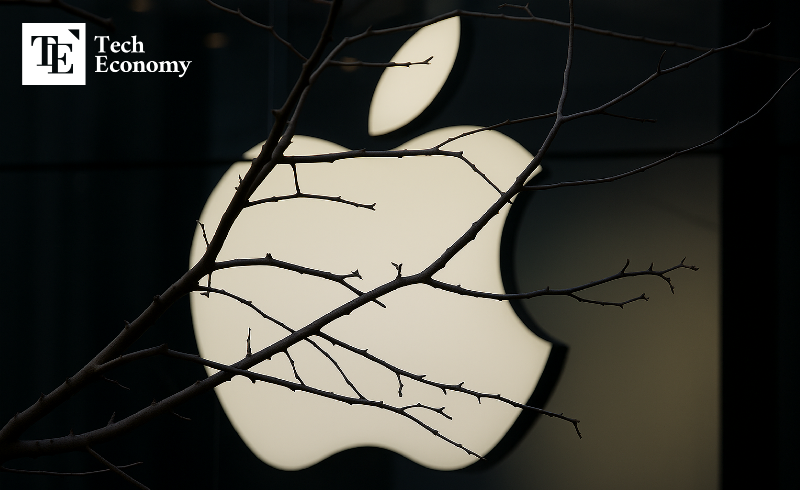
Tim Cook, CEO of Apple, recently marked a milestone as the longest-serving chief executive in the company’s history. However, under Cook’s leadership, Apple’s hallmark of innovation appears to have faded, prompting concerns that the company is losing its edge in the ongoing battle for supremacy in artificial intelligence (AI), with next-generation product development suffering notable delays. Simultaneously, intensified regulatory crackdowns in the U.S. and Europe, coupled with supply chain disruptions triggered by U.S.-China tensions, are converging into a set of compounded risks that threaten to undermine Apple’s future growth trajectory.
Cook’s Supply Chain Mastery Fails to Sustain Innovation-Led Growth
According to the Economic Times and other outlets on August 5 (local time), Tim Cook officially surpassed Steve Jobs on August 1, becoming Apple’s longest-tenured CEO with 5,091 days in office. Having succeeded Jobs in 2011, Cook brought with him operational expertise from his tenure as Chief Operating Officer (COO) and is widely regarded as a supply chain virtuoso. Since assuming the helm, Cook has steered Apple toward "stable growth" underpinned by operational discipline, resulting in formidable financial achievements. Over the past 14 years, Apple has sold iPhones worth $2 trillion, and in January 2022, it became the first company ever to reach a $3 trillion market capitalization.
While Cook’s contributions to Apple’s financial and global operational prowess are largely uncontested, critics argue that the company has forfeited its "DNA of innovation" once synonymous with its brand identity. The Jobs era was characterized by seismic product breakthroughs—iMac, iPod, iPhone—that redefined industries. In contrast, under Cook, the scale and intensity of market disruption have notably waned. Since the departure of former Chief Design Officer Jony Ive in 2019, Apple’s flagship iPhone has seen minimal innovation in both design and functionality, further amplifying concerns.
Performance indicators echo this innovation fatigue. Over the past three years, Apple’s average annual revenue growth stood at 2.3%, significantly lagging behind Alphabet, Amazon, Meta, and Microsoft (11–14%), and dwarfed by Nvidia’s 80%. Apple's market capitalization growth has also been the slowest among the "Big Five," having been overtaken by both Nvidia and Microsoft. Particularly troubling is Apple’s strategic incoherence in the AI domain. A long-anticipated upgrade to its voice assistant Siri remains absent, and the generative AI features unveiled at the company’s annual Worldwide Developers Conference (WWDC) in June failed to meet market expectations.
On-Device AI Strategy Exposes Vulnerabilities in the Generative Era
Analysts attribute Apple’s loss of AI leadership to its prolonged commitment to an "on-device optimization" strategy. This approach, which processes data locally on devices such as iPhones and Macs, has long championed privacy protection. However, in the age of generative AI—where real-time, cloud-powered services dominate—this model imposes inherent limitations in terms of scale and performance. MarketWatch, a U.S. financial outlet, noted that “a leadership change may be necessary if Apple hopes to regain momentum in the AI race.”
Apple’s absence of robust AI capabilities has negatively affected the development of next-generation flagship products. Although the company has pursued various new business avenues and invested heavily in product R&D, few have borne fruit in recent years. One prominent example is the Apple Car project, which was scrapped early last year after persistent doubts regarding its profitability and technological competitiveness. Ironically, Apple’s decision to abandon the project was met with relief from many investors. Other initiatives—including a smartwatch with a built-in display and camera, AR smart glasses compatible with Macs, and more—have also been quietly shelved.
Apple’s leadership void in AI is widening. Luoming Pang, developer of Apple’s AI foundation model (AFM), has defected to Meta, while AI chief John Giannandrea has remained absent from public appearances. Meanwhile, Jony Ive—once the company’s design icon—has joined OpenAI to co-develop AI hardware aimed at defining the "post-iPhone" era. With most of Apple’s top brass, including Cook, now in their sixties, concerns are mounting over the company’s lack of emerging leadership. Although several younger executives have been floated as successors, many doubt their ability to command Apple’s vast hardware and AI ecosystems.
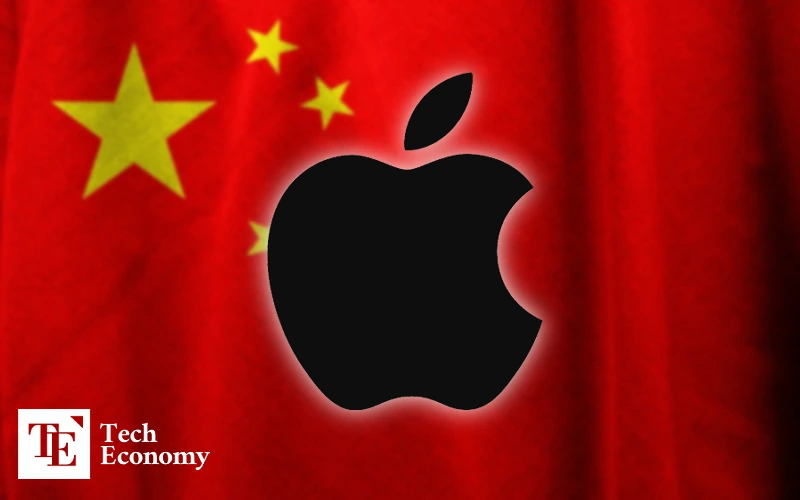
Trump Escalates Pressure, Threatens Tariffs to Force Supply Chain Reshoring
As regulatory scrutiny of Big Tech intensifies in the U.S., Apple’s external environment is rapidly deteriorating. The company’s primary revenue stream—fees from Google’s default search engine status on Safari—is now under threat due to an antitrust lawsuit brought by the U.S. government. Simultaneously, Apple’s App Store operations are facing mounting regulatory headwinds globally. The longstanding policy mandating in-app payments via Apple’s own system has been labeled "unfair conduct," paving the way for third-party and web-based payment systems to gain legitimacy. In Europe, the Digital Markets Act (DMA) is directly targeting Apple’s walled-garden ecosystem. The implications are profound: Apple’s core business model, which generates tens of billions of dollars annually, is at risk of systemic disruption.
Geopolitical risks stemming from U.S.-China tensions are emerging as the most formidable external threat. President Donald Trump is intensifying pressure on Apple to repatriate its manufacturing operations, even as Cook pushes to diversify production to India and Vietnam in a bid to reduce overdependence on China. Trump has explicitly warned, “If iPhones are not made in the U.S., we will impose a 25% tariff,” ramping up the pressure on Apple. However, the astronomical costs associated with such a move complicate any swift strategic pivot. Estimates suggest that relocating iPhone production to the U.S. could push retail prices as high as $3,500—up to 3.5 times current levels.
Equally alarming is Apple’s declining market share in China, its largest market. In 2023, Apple led China’s smartphone segment, but by 2024, it had fallen to third place—and has since slipped further to fifth. Four of the top five manufacturers in the Chinese market are now domestic brands, which collectively command more than 65% market share. Rising anti-American sentiment amid worsening U.S.-China relations has catalyzed a wave of patriotic consumption. Further compounding the issue, the Chinese government in January introduced subsidies worth 15% of the sticker price—but only for smartphones priced under $820—thereby exacerbating Apple’s market erosion.
Industry analysts widely view this year as a pivotal inflection point for both Tim Cook and Apple, with a convergence of tariff threats, legal and political challenges, AI competition, and supply chain reconfigurations. With Apple’s stock price down 25% from its peak, investor anxiety over Cook’s leadership and the company’s strategic direction is intensifying. The Economist even warned that Apple could suffer the same fate as Finnish telecom giant Nokia, whose downfall in the early 2000s was precipitated by Apple itself. The publication recommended that Apple refocus on what was once its most celebrated strength: “form factor” innovation that reshaped the industry.


